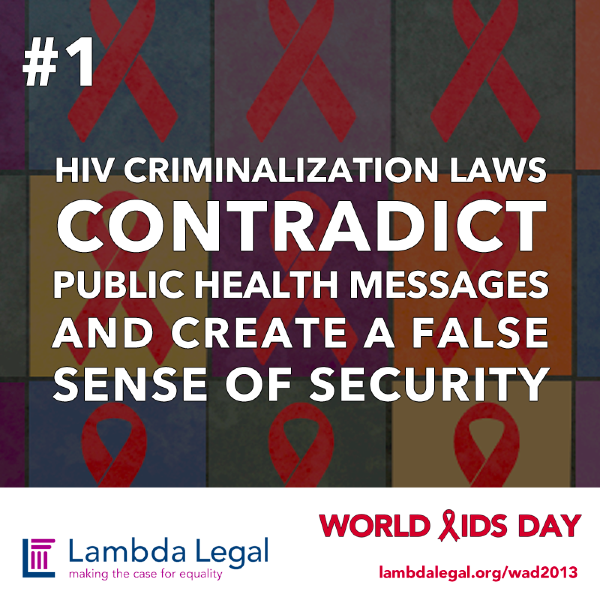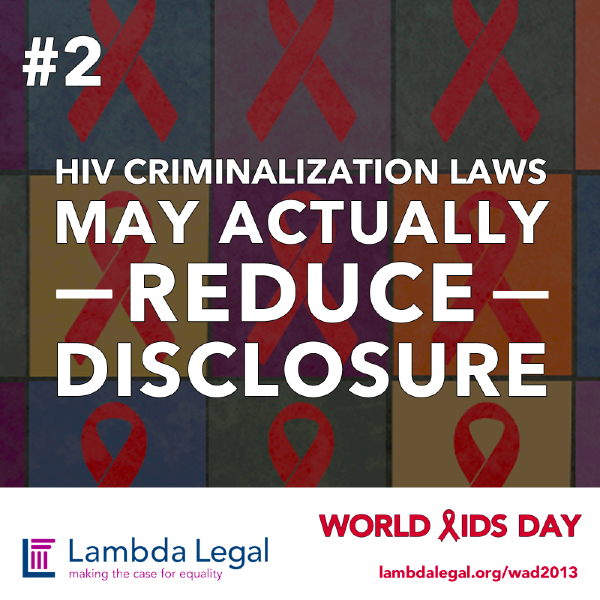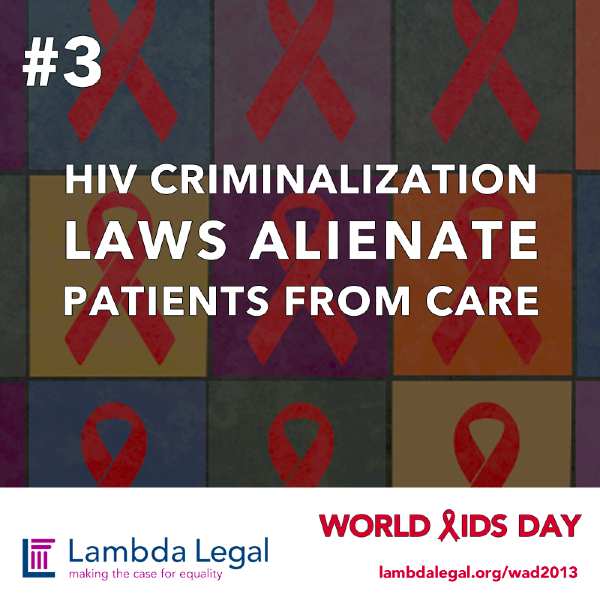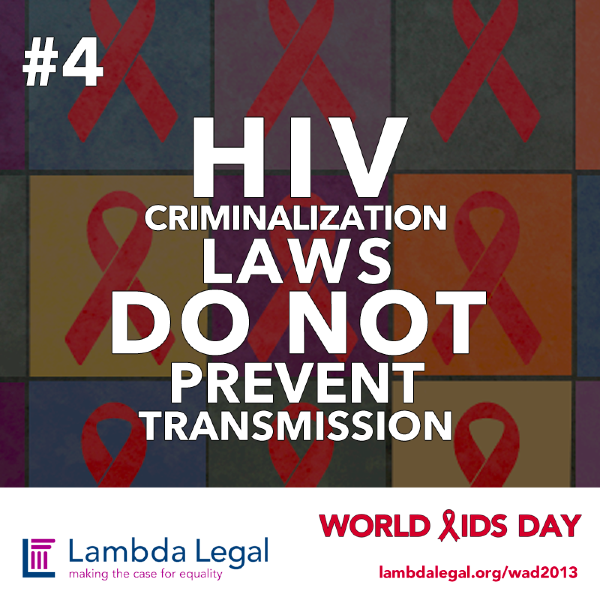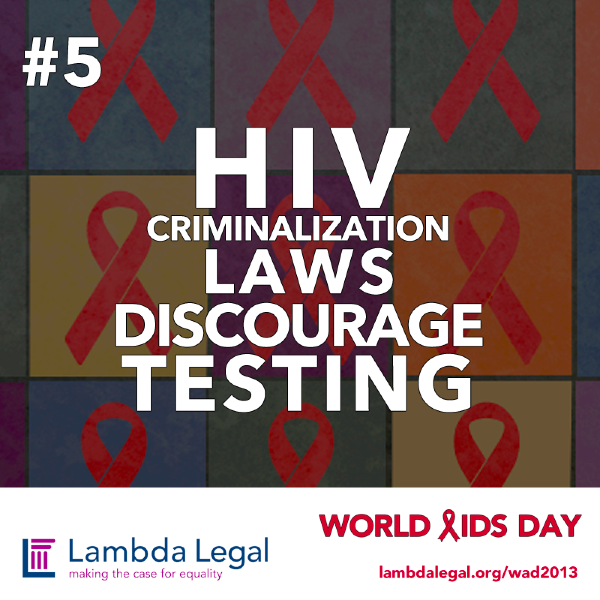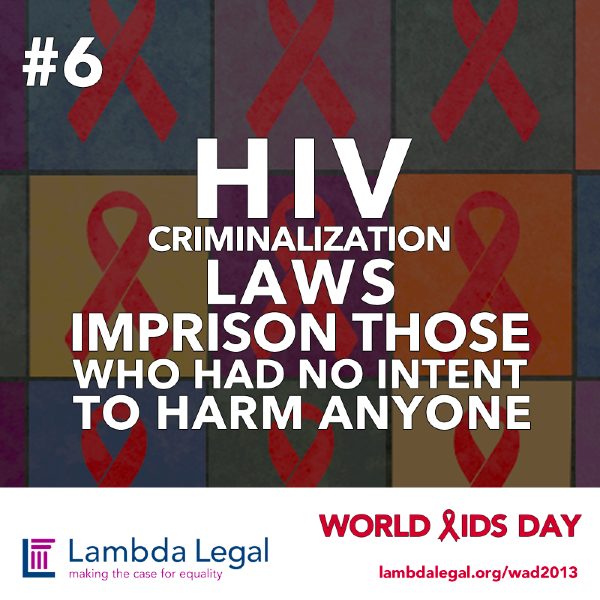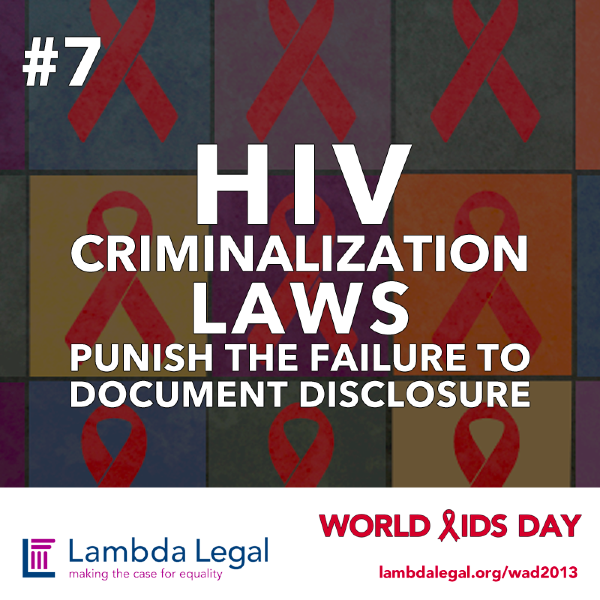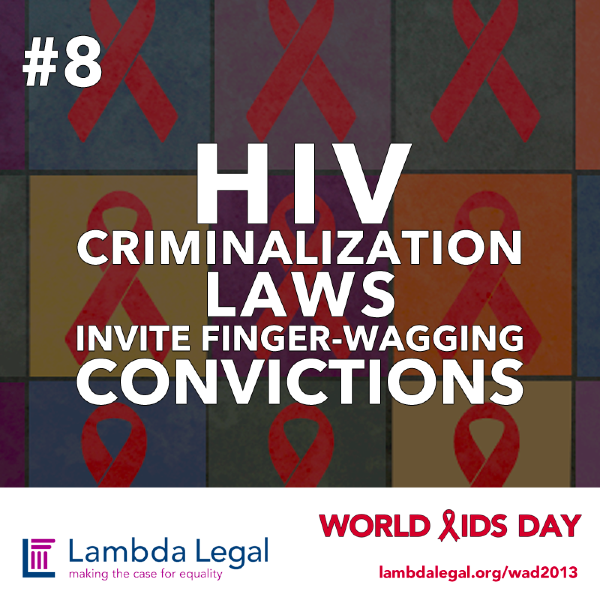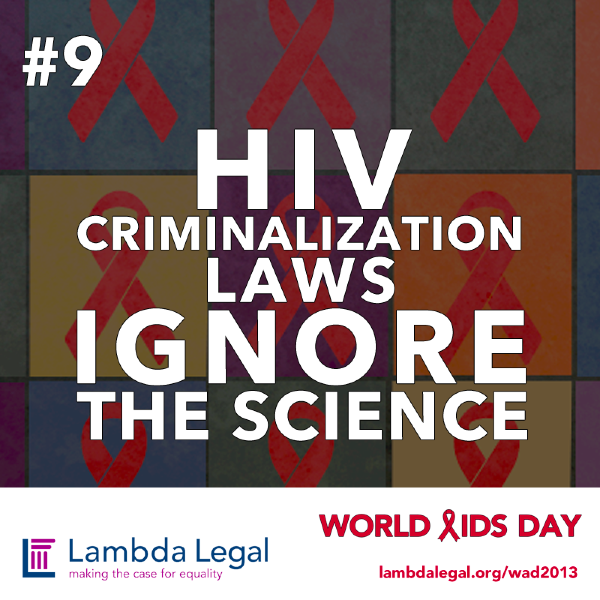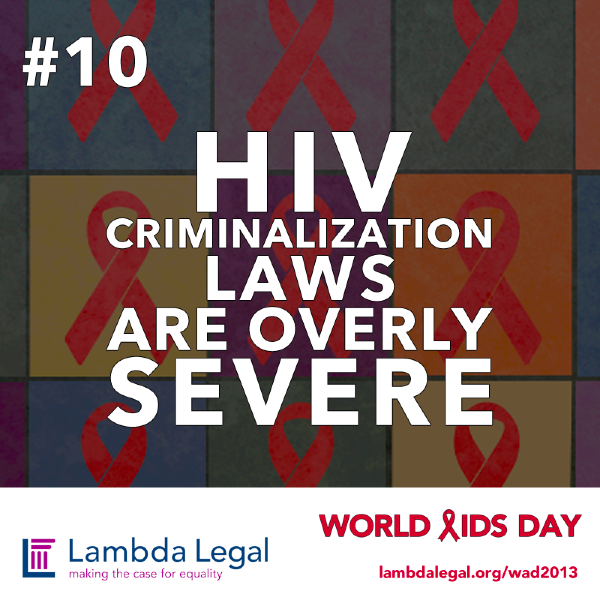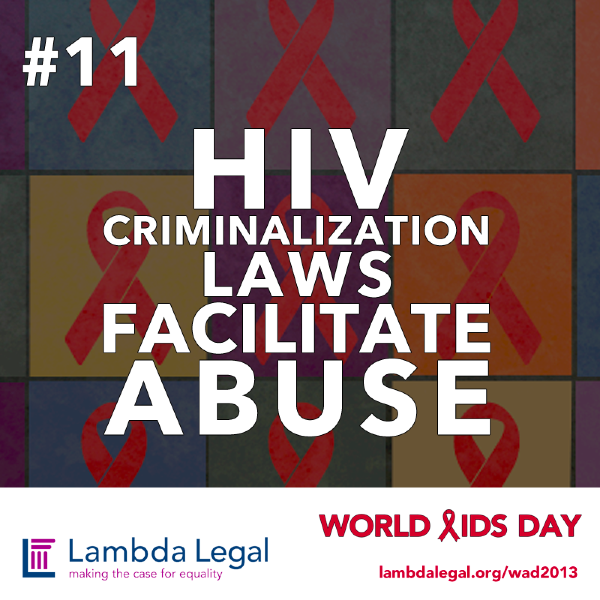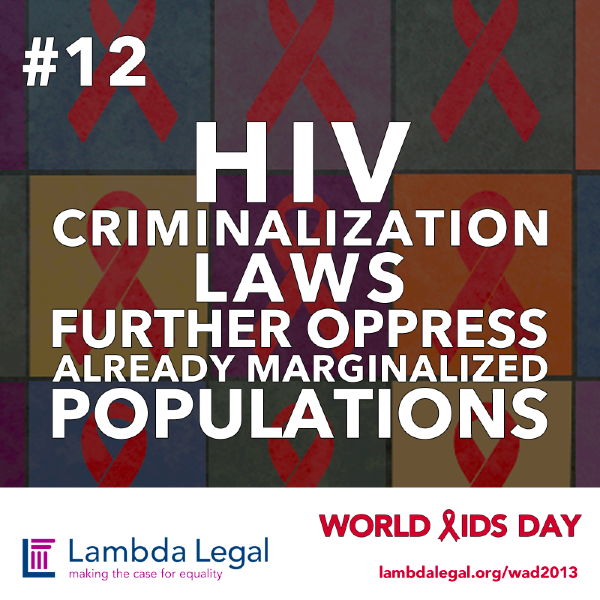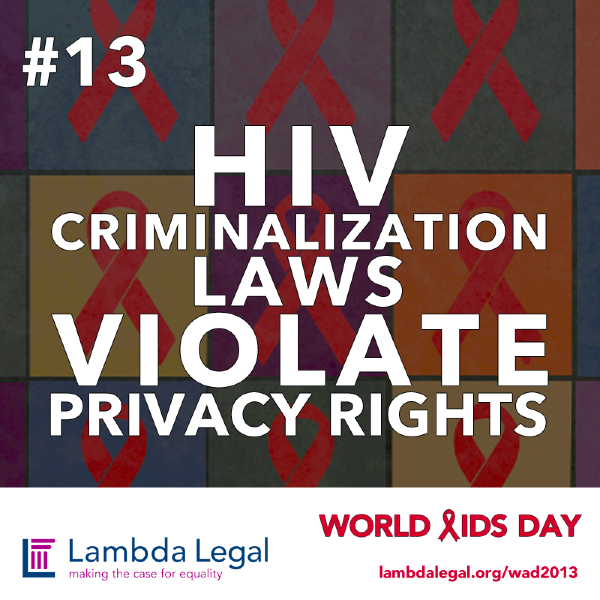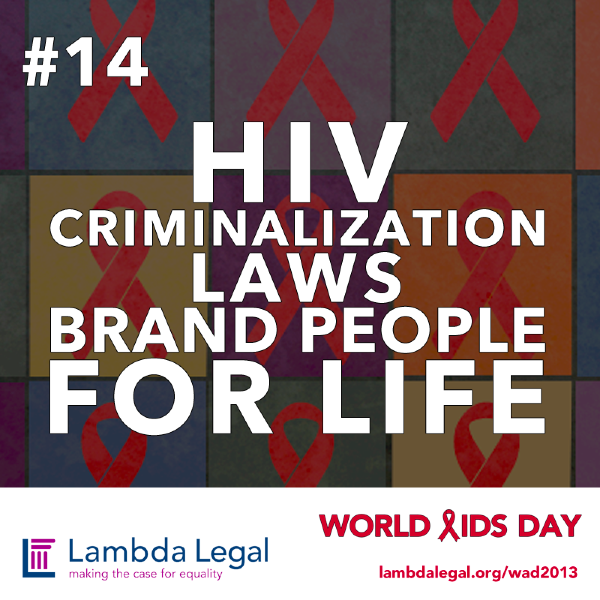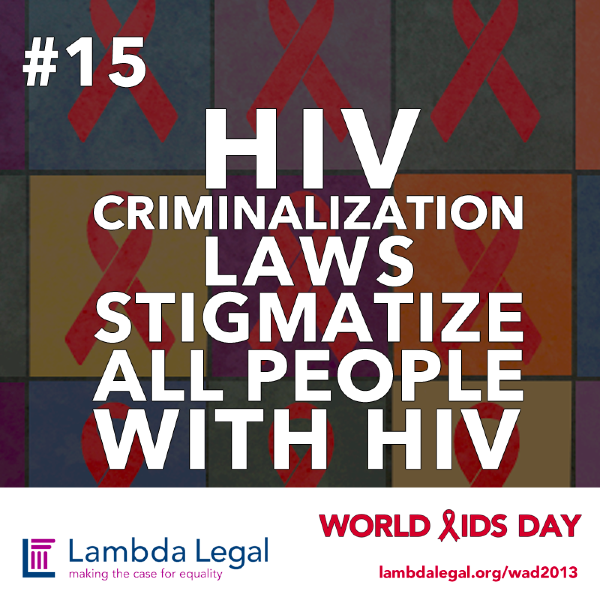[Press release from Lambda Legal]
“We call upon those charged with enforcing such laws—from governors to prosecutors to police detectives—to halt the criminal prosecution and resulting persecution of any individual based on HIV status.”
(Washington, D.C. Thursday, July 17, 2014) – Lambda Legal today called for a moratorium on all HIV-based criminal prosecutions until state legislatures take action to implement the reforms recommended in the recent Department of Justice (DOJ) guidance advising states to eliminate such prosecutions absent clear evidence of an intent to harm and a significant risk of actual transmission.
“This is a watershed moment in the fight to decriminalize HIV. When the country’s leading law enforcement agency — working hand-in-hand with the country’s leading public health authority — reaches the conclusion that particular laws and criminal prosecutions are working at cross-purposes to our national strategy for ending the HIV/AIDS epidemic, it is time for those with the power to end these prosecutions to take immediate action,” said Scott Schoettes, HIV Project Director for Lambda Legal. “We call upon those charged with enforcing such laws—from governors to prosecutors to police detectives—to halt the criminal prosecution and resulting persecution of any individual based on HIV status.”
Earlier this year, the DOJ co-authored an article with the Centers for Disease Control and Prevention (CDC) analyzing the current landscape with respect to HIV criminalization laws in the United States. As a follow-up, the DOJ this week published guidance (“Best Practices Guide to Reform HIV-Specific Criminal Laws to Align with Scientifically-Supported Factors” [link]) noting that these laws are not based on a current understanding of HIV or the availability of biomedical techniques for preventing its transmission, were enacted when the prognosis of those with access to care was much different than it is today, and place unique and unnecessary additional burdens on people living with HIV.
Schoettes added, “For years, Lambda Legal has been advocating for the repeal or reform of HIV criminalization laws, assisting defense attorneys from behind the scenes, and—when the opportunity arose and a solid legal argument could be made—fighting in court ourselves against the most egregious application of such laws. Along with a wide range of allies we have refined the arguments against these laws, made our case to audiences both gay and straight, and pressed others to join our cause. The growing drumbeat against these laws and unjust prosecutions finally has reached the ears of those in positions of authority. And this summer, the tide has finally turned in our favor.”
Within the criminal justice system, prosecutors have a significant degree of discretion and represent the most important safeguard against unjust applications of the criminal law. In this circumstance, any government attorney who is currently prosecuting a criminal case that turns upon the HIV status of the defendant is invested with the power to consider whether that prosecution conforms to the best practices set forth by the Department of Justice guidance and to discontinue prosecutions that are not in line it. In situations involving consensual sexual conduct between adults, a prosecution would not move forward under the parameters of this guidance unless there is clear evidence of both the intent to transmit the virus and a significant risk of transmission as a result of that person’s conduct.
“Right now, dozens of individuals in states all across the country face prosecutions that are not justifiable under the parameters set forth in the DOJ guidance,” said Schoettes. “No person who is in a position to halt such a prosecution should stand idly by while these individuals are subjected to such unwarranted persecution. We call upon those who have pledged themselves to pursue justice on behalf of the communities they serve to fulfill that pledge now, to end all prosecutions based on HIV status, and to return these individuals to their families and their lives.”
Last month, in a pivotal appeal litigated by Lambda Legal, the Iowa Supreme Court set aside the conviction of Nick Rhoades, an HIV-positive Iowan who was initially sentenced to 25 years in prison, with required registration as a sex offender, after having a one-time sexual encounter with another man during which they used a condom. In reversing the conviction, the Court questioned whether HIV-positive individuals who have a reduced viral load as a result of effective treatment can transmit HIV through sexual activity.
The DOJ guidance is available here
The Iowa Supreme Court ruling in Lambda Legal’s case Rhoades v. Iowa is available here
